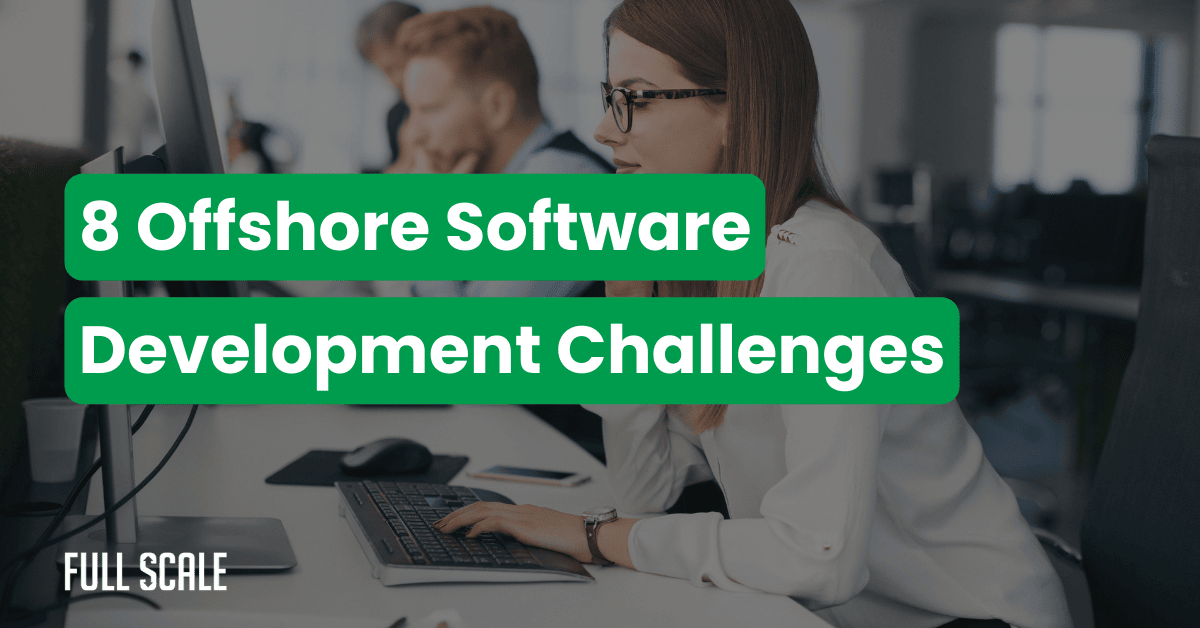Last Updated on 2026-01-04
Most CTOs waste December planning for January hiring. Smart CTOs use December to START January execution.
Engineering budget planning is the strategic process of allocating financial resources across your software development team, including salaries, tools, and infrastructure. The companies that dominate Q1 2026 are making decisions right now in December 2025.
I’ve helped 60+ CTOs restructure their budgets. Companies that nail December budget planning hit the ground running. Companies that wait until January spend three months catching up.
What You'll Learn:
- Why December gives you a 3-month advantage for Q1 execution
- The three-tier budget model used by 60+ tech companies
- How to convert remaining 2025 budget into 2026 capacity
- Staff augmentation math that gives you 3X more developers
- CFO-approved language that gets budgets approved faster
The December Engineering Budget Planning Window
December isn’t about spreadsheets. It’s about gaining a three-month advantage over competitors who wait until January.
Traditional engineering budget planning follows a broken timeline. You plan in December, get approval in January, start recruiting in February, and onboard someone by April. That’s four months before your first developer ships code.
The shift: use December to make decisions AND start execution. According to a 2024 Gartner study, 68% of IT leaders report that late Q1 hiring significantly impacts annual delivery targets.
The December Decision Framework

This timeline shows the advantage. December decisions create January execution. January decisions create April execution. That three-month gap determines whether you hit Q1 targets or explain why you’re behind.
The average time-to-hire for senior engineers is 49 days, according to LinkedIn’s 2024 data. Start in January, you’re looking at March before someone starts.
The 2026 Engineering Budget Allocation Framework
Engineering budget planning fails when you treat all costs the same. Not all engineering dollars deliver equal value.
The Three-Tier Budget Model
This framework transforms how you allocate resources:
| Budget Tier | Allocation % | Cost Per Developer | Best For |
|---|---|---|---|
| Core Team (Local) | 40-50% | $150K-$200K/year | Tech leadership, critical systems |
| Growth Capacity (Offshore) | 30-40% | $57K-$79K/year | Feature development, scaling |
| Specialized Skills | 10-20% | $100K-$250K/project | Specific projects, compliance |
Here’s the math that changes everything: With a $1M budget, the traditional model gets you 5-6 local developers. The three-tier model gets you 3 local leaders plus 10 offshore developers. That’s 13 people shipping code instead of 6.
Budget Allocation By Company Stage
Your stage determines your split. Staff augmentation works differently at each stage:
Seed/Series A:
- 60% Core Team (senior people who pivot fast)
- 20% Growth Capacity (offshore for features)
- 20% Specialized (consultants for setup)
Series B/C:
- 40% Core Team (your tech leadership)
- 45% Growth Capacity (offshore teams shine here)
- 15% Specialized (compliance, security)
Enterprise:
- 35% Core Team (established leadership)
- 50% Growth Capacity (most feature work)
- 15% Specialized (ongoing niche skills)
Using Your 2025 Budget Strategically
Your unused 2025 budget is either a wasted asset or a 2026 advantage. Most companies have a budget left in December. Finance wants you to spend it or return it.
Here’s what most CTOs miss: return $200K in December, then fight for that same $200K in February. Finance remembers. They think you didn’t need it.
December-to-January Bridge Strategy
Convert the 2025 budget into the 2026 capacity:

Real example: One client had $180K unused in the 2025 budget. Instead of returning it, they hired three offshore developers in December. January 2 started with a running team. In February, they shipped two major features. In March, the CTO got approval for three more developers.
That’s engineering budget planning that creates its own success.
Engineering Budget Planning: Staff Augmentation Model
Traditional hiring burns your budget. Staff augmentation stretches it without sacrificing quality.
According to Full Scale’s pricing, offshore developers cost $4,800-$6,600 per month ($57,600-$79,200/year). A senior U.S. developer costs $150K-$200K. Same skill level. Different cost structure.
Budget Comparison Calculator
Traditional All-Local Approach:
Developers
Total annual capacity: developer-hours
Smart Hybrid Model (Full Scale):
Local + Offshore = Total
Total annual capacity: developer-hours
Your Advantage:
Additional Developers:
+
Capacity Increase:
%
Ready to maximize your engineering budget?
Build Your Team NowThis calculator shows your real capacity advantage. Plug in your numbers and watch the math transform your engineering budget planning approach.
Quality Through Better Models
Here’s what people get wrong about offshore. They think “cheaper means worse.” That’s only true with bad models.
We have a 95% developer retention rate. Industry average is 68%. Our developers stay because they’re treated like employees, not contractors. Learn how we hire software developers who become long-term team members.
Quality comes from the model, not the location.
Getting CFO Buy-In for Your Engineering Budget
Your CFO doesn’t care about technical debt. They care about ROI, predictability, and outcomes.
Stop saying: “We need more developers.” Start saying: “This investment reduces cost per feature by 40%.”
The Business Case Framework
Your budget request needs three components:
What you're spending now, what it delivers, where inefficiencies exist.
What the new structure delivers, how it improves efficiency, what outcomes it enables.
What happens without investment, what happens if it fails, how you'll measure success.
Use this comparison in your presentation:
| Metric | Current | Proposed | Impact |
|---|---|---|---|
| Team Size | 6 developers | 13 total | +117% |
| Features Per Quarter | 3-4 major | 8-10 major | +150% |
| Time to Market | 12 weeks | 8 weeks | -33% |
This gives your CFO everything they need. More capacity, lower cost per feature, faster delivery.
Q1 2026 Engineering Resource Planning
Most engineering budget planning ends with approval. Smart planning continues through execution. Q1 sets the tone for your year.
January Execution Timeline
Week 1: Integration sprint – developers log into Slack, attend standups, shadow team members Weeks 2-3: First contributions – small tickets, PRs, feedback from senior engineers
Week 4: Full sprint participation – attending planning, picking up stories, shipping features
By the end of January, your offshore team is in full sprint cycles. Learn more about managing remote development teams effectively.
Real Q1 Results from Full Scale Clients:
14 days
Average time from decision to first developer
95%
Developer retention rate vs. 68% industry average
60%
Cost reduction vs. local hiring
3X
Team capacity for same budget
These aren’t marketing claims. This is data from 60+ tech companies using our model.
Why Partner with Full Scale for Engineering Budget Planning
We’ve helped 60+ tech companies optimize their engineering budgets. Here’s what makes us different:
- No Middlemen Model: Direct developer access through Slack and standups
- 95% Retention Rate: 27 points higher than industry average
- U.S.-Based Contracts: IP protection without offshore legal complexity
- 14-Day Onboarding: From decision to first developer in two weeks
- Transparent Pricing: $4,800-$6,600/month per developer, no hidden fees
- Senior-Level Talent: Real vetting ensures genuine experience
- 500+ Developer Placements: We know what works
- Full Benefits Package: Healthcare, career growth, stability
Compare staff augmentation vs. traditional outsourcing to see the model difference.
Ready to Make December Count?
Stop planning for January. Start executing in January. Book your December strategy call now.
Most tech companies allocate 15-25% of revenue to engineering. Early-stage startups often spend 30-40% because product development drives growth. Use the three-tier model: 40-50% for core team, 30-40% for growth capacity, 10-20% for specialized skills.
Start in December 2025 for January 2026 execution. Companies that wait until January delay execution until March or April. The December advantage is real: vendor selection, developer vetting, and contracts all happen before year-end. January starts with onboarding, not planning.
Staff augmentation means developers integrate directly into your team. They attend your standups, use your tools, follow your processes. You maintain control. Traditional outsourcing hands projects to separate teams with their own processes and project managers. You lose direct control.
With Full Scale, the average time from decision to first developer is 14 days. Week one covers requirements and candidate selection. Week two handles interviews and onboarding prep. Traditional offshore hiring takes 60-90 days. Recruitment firms average 49 days.
Quality depends on the provider’s vetting process and retention model. Our 95% retention rate exists because we hire senior developers and treat them like employees. We don’t hire junior developers and call them senior. Our candidates have 5-8+ years of experience with portfolio reviews and technical assessments before reaching the interview stage.

Matt Watson is a serial tech entrepreneur who has started four companies and had a nine-figure exit. He was the founder and CTO of VinSolutions, the #1 CRM software used in today’s automotive industry. He has over twenty years of experience working as a tech CTO and building cutting-edge SaaS solutions.
As the CEO of Full Scale, he has helped over 100 tech companies build their software services and development teams. Full Scale specializes in helping tech companies grow by augmenting their in-house teams with software development talent from the Philippines.
Matt hosts Startup Hustle, a top podcast about entrepreneurship with over 6 million downloads. He has a wealth of knowledge about startups and business from his personal experience and from interviewing hundreds of other entrepreneurs.




